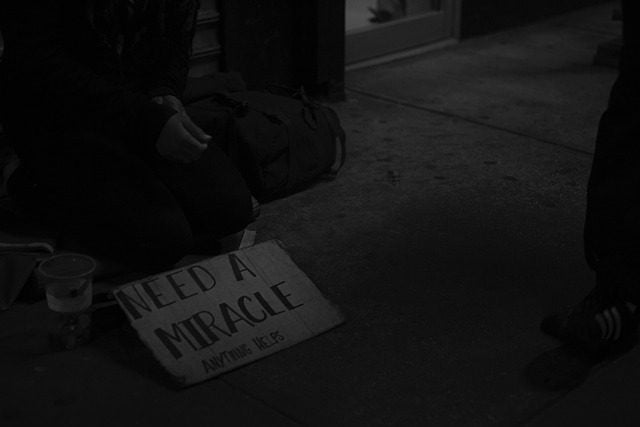
I drove to Columbus in Serendipity.
It’s hard getting used to a new car that works properly. The Neighborhood Trolley was in bad shape from the moment I drove it off the lot. I had never bought a car before, and a four thousand dollar car isn’t going to be a good car regardless. The Neighborhood Trolley had a bad radiator fan and a bad 02 sensor, and the transmission was beginning to tick like a bomb every time I put on the brakes. For Serendipity, my friends pulled together to get us more money so we wouldn’t be stuck with a lemon again. Serendipity has nothing wrong, except for a loud accelerator and a few cigarette marks on the seats. The new car smell doesn’t quite cover the old tobacco smell, but that’s fading.
It was almost frightening, driving such a smooth quiet car all the way out to the city. I kept expecting something to go wrong. I always expect things to go wrong, and I’m usually right.
You might recall that Holly the Witch has been keeping the undriveable Neighborhood Trolley in front of her garage for me, since I couldn’t very well drag it back to Steubenville after the accident. I was afraid she’d get a ticket if we kept it there much longer, so I made a whirlwind trip back to town to scrap the car before anybody complained.
I didn’t know what to do about the homeless woman who had been sleeping there.
Her name is Debbie, and she’s one of the addicts who lives in Holly’s neighborhood. She’d been kicked off the porch where she had been sleeping, one afternoon a few weeks ago, and she went to Holly’s place to ask for lunch. Holly told her there was a car nobody was using behind her house; it couldn’t drive anywhere, but the door would lock and unlock and the seats were soft. The airbags made a good privacy curtain. Debbie made herself at home. She knew this was a temporary measure. You can’t park a smashed up car behind your house forever. I needed my license plate back. But it worked for a few weeks. Now I was coming back to town to kick her out.
I got to Holly’s house in the early evening. All the stress of driving with an anxiety disorder wore off instantly, because Holly’s house is so warm and welcoming. Holly, Reese and I ate dessert for dinner and talked for hours. At one point she went out to collect eggs, and found that the spoiled pet chickens had started laying in a hidden corner of their generous, toy-filled coop instead of the brooding box, and we laughed about that. But I kept glancing outside at the wrecked Neighborhood Trolley by the garage.
“You probably won’t see Debbie,” said Holly. “I told her you were coming and she said she’d get her stuff out. She’s probably already moved on.”
But I did see her the next morning. She was in the Neighborhood Trolley, removing the flowered quilt she’d put over the seats to make the place more homey. “I’ll get out in just a minute,” she said cheerfully, leaning out the window, “Just lemme get my stuff!”
“Take your time,” I said.
It’s important not to stereotype the homeless. They aren’t caricatures, they’re people. Some got into the position they’re in by bad choices and most got in by bad luck. Some are wicked and some are good. Some are personable and some are the opposite. But Debbie was personable. She was cheerful. She talked just like a regular folksy Midwestern lady, your nice old aunt who is absentminded and eccentric. Of course, in Debbie’s case, the absentmindedness wasn’t age. She’s only a little older than Holly, though she looks a decade older. Debbie’s trouble was addiction.
“I’m not on ice,” she explained, meaning meth. “Just fentanyl and crack. I’ll get my stuff out just one minute. Thank you for letting me use the car! It was so comfortable and it’s cold out here!”
I felt like I was committing murder by scrapping my car, but Debbie didn’t look like she was being murdered. She chattered about the picnic bench she’d found to sleep under after this. Holly asked about a homeless camp she knew of, but Debbie said she’d like to stay local. “I want to stay near you! You’re so nice!”
She got out of the car, which was when we realized she was in two pairs of dirty socks instead of shoes. Holly ran inside and came back with a pair of winter boots that fit her, for which she was as thankful as if it was Christmas.
You must not demand gratitude of the homeless. They are human beings, not props to make us feel generous. They deserve shoes because they have feet, not because it makes the shoe-giver feel appreciated. But Debbie was very grateful, and thanked Holly profusely.
“Do you need anything else?” I asked. “I can probably get you something. A tent or a coat or something?”
“A tent and a few blankets would be nice,” said Debbie.
She went back to her coloring book, which Holly had given her to keep her hands busy so she wouldn’t pick at her skin anymore. When I came back again, she was gone.
“It makes me physically sick to think my chickens have a nice warm garage to sleep in while she is being evicted from a car,” said Holly. “I wish I could turn my backyard into a campsite without my neighbors grabbing torches and pitchforks.”
But she couldn’t.
She could let Debbie store some of her things in the garage, and she did so, but she couldn’t even offer it as a place to sleep long term for fear the neighbors would notice and call the police. And what if a homeless person died in her garage? What if they turned tricks in there or overdosed? We talked about this as we waited for the tow truck.
The wrecker gave me a few hundred dollars, all of which was immediately spoken for because it wouldn’t quite cover the tax on Serendipity. He towed the Neighborhood Trolley away, with a dirty towel and a green banana still inside. I remembered Bill from The Friendship Room telling me that addicts love bananas, because their teeth are too ruined to crunch on other produce and because the potassium from bananas keeps them from dying.
The banana was the straw that broke the camel’s back. I went inside, equal parts sad and furious.
I set up my laptop on Holly’s sofa.
Catholic Twitter has been arguing about divorce this week– when a woman may get one, and whether she should run away or stay and endure suffering when her marriage is dangerous. Some were saying she couldn’t and some were saying she could, while I was insisting that I didn’t even care if there was a canon law about that and she ought to get away whether it was a sin or not. Somewhere along the line, the conversation had gotten even more offensive as people started arguing about whether women ought to climax during intercourse. I wish I could say I’ve never read such an asinine conversation in my life, but that corner of Twitter is always like that. I burst in with my usual tact and tweeted that while they were busy dissecting the minutia of canon law, a cheerful woman was being evicted from a car and she didn’t even have winter clothes. And then I set up one of my gift registries on Amazon, with the address set to Holly’s house instead of mine. I pretended it was my birthday, but the birthday gifts I registered for were for Debbie: a four-season portable tent in a bag, a sleeping bag, underpants, a backpack, socks, a warm coat. A coloring book and pencils for when she finished with the one she had. A water bottle. A first aid kit with bandages and ointment for that face-picking problem.
This isn’t right. It isn’t a cute or a happy gesture, it’s a desperate one. Addiction is an illness, and sick people deserve help. Women in their 50s who are disabled and look seventy deserve a nice house with a porch and a rocking chair, not a tent to sleep in. And I didn’t even know if she’d be able to find a place to pitch her tent safely, things being what they are. But it was something.
I guess I shamed people by tweeting about Debbie, because the next thing I knew, every item on the list had been purchased and sent to Holly’s house. I added a few more things, for Holly to distribute to the local homeless: soft granola bars, rain ponchos, foil blankets, menstrual kits. Those, too, were bought very quickly. Some of them even came in that same day, just after I hit the road for Steubenville.
Debbie slept in a sleeping bag tonight, and she’ll have her tent by the weekend. She knows of a place she can pitch it, under a bridge where it can’t be seen.
I didn’t really do anything. I just complained, and help came.
This isn’t a happy ending. The solution I came up with isn’t a real solution. That tent and coat will wear out very quickly, and Debbie will still be homeless. And there are thousands of Debbies in Columbus, and in the place you live as well– sick people who need treatment and a place to live, wearing socks instead of shoes, sleeping under picnic benches and bridges. People with the means to help them will go on arguing about sin instead of doing something to help, and that itself is a sin.
Still, we did well for one day.
Someone in this terrible world is suffering a little less right now.
I drove home in Serendipity, and I wasn’t afraid.
Sometimes things work out.
image via Pixabay
Mary Pezzulo is the author of Meditations on the Way of the Cross, The Sorrows and Joys of Mary, and Stumbling into Grace: How We Meet God in Tiny Works of Mercy.













